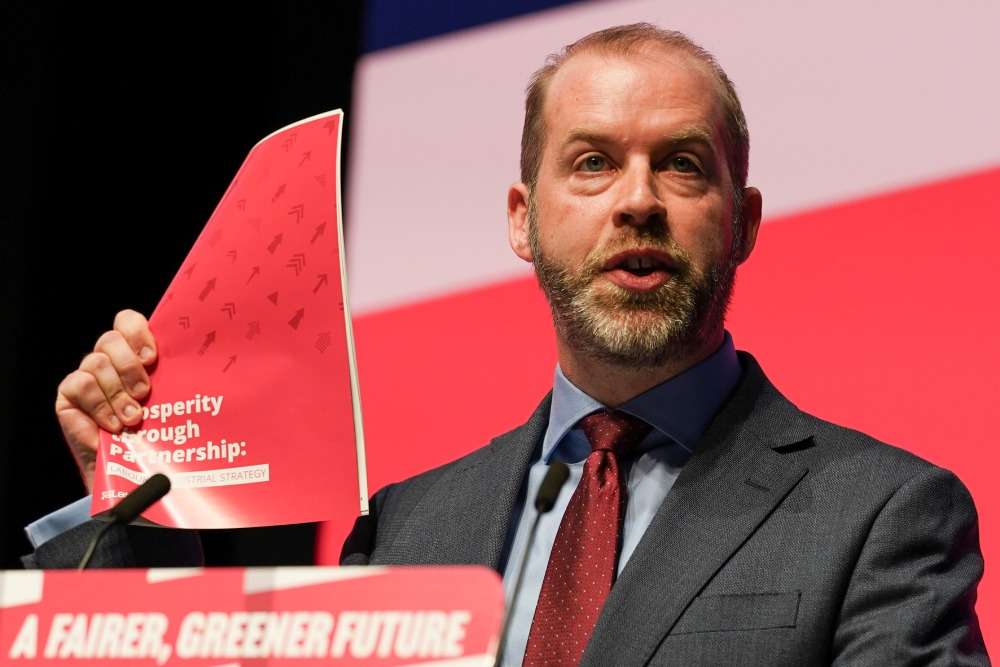Chancellor Rachel Reeves has strongly resisted calls to reduce UK trade relations with China, stating it would be “very foolish” for UK to disengage from the world’s second-largest economy.
Reeves’ remarks come just ahead of her scheduled visit to Washington next week, where she is expected to discuss a possible UK-US trade deal. Her visit also coincides with reports that US officials are strategizing to use trade policy, including tariffs and agreements, to curb China’s economic influence.
“China is the second biggest economy in the world, and it would be, I think, very foolish to not engage. That’s the approach of this government.”
Rachel Reeves
Her comments highlight the balancing act the UK is attempting — managing its UK trade relations with China while maintaining close economic and diplomatic ties with the United States.
Sources reported this week that Washington might urge London to distance itself economically from Beijing, as part of its broader global strategy. However, Reeves made it clear that the UK has no intention of taking a hardline approach that could jeopardize critical economic interests.
She also defended the prospect of Chinese-founded fashion giant Shein listing on the London Stock Exchange. Though now based in Singapore, Shein has faced intense scrutiny over alleged labour rights violations and its supply chain practices. Reeves stated that any listing would need to meet the UK’s strict financial regulations: “The London Stock Exchange and the Financial Conduct Authority have very strict standards,” she said, while affirming that she was “open” to the IPO.
Engagement Deemed Vital By Chancellor Reeves
Reeves’ defense of Shein came just a week after the government was compelled to use emergency powers to maintain operations at the Scunthorpe steel plant, owned by Chinese firm Jingye. The plant had faced the threat of shutdown after reports emerged that Jingye failed to order necessary supplies to keep the blast furnaces running.
The episode has reignited parliamentary concerns over Chinese involvement in sensitive UK infrastructure. Some MPs questioned Jingye’s alleged ties to the Chinese government and argued for stricter scrutiny of Chinese firms operating in the UK’s critical sectors. The Chinese Embassy in London responded sharply, accusing British lawmakers of “anti-China” bias and an “arrogance, ignorance, and twisted mindset.”
In response to the growing debate, Reeves clarified the government’s position, noting that Chinese investment would be blocked in “sensitive areas of critical national infrastructure.” But she reiterated that not all Chinese business ventures would be treated with suspicion or hostility.
Business Secretary Jonathan Reynolds echoed a similar sentiment, noting that while Chinese firms in the steel industry would be evaluated “in a different way,” investment in other sectors remains open, depending on national security assessments.

In addition to her stance on UK trade relations with China, Reeves emphasized the government’s commitment to revitalizing the British business landscape.
“We have lost business and we have lost companies in recent years, and we’re working closely with the London Stock Exchange to make the UK a more vibrant place to list.”
Rachel Reeves
Reeves is expected to meet US Treasury Secretary Scott Bessent during the International Monetary Fund’s spring meetings next week. One of the key objectives of these meetings is to finalize the terms of a UK-US trade agreement, with hopes for tariff reductions on goods such as steel, aluminium, and vehicles.
Prime Minister Keir Starmer recently spoke with President Donald Trump about the ongoing negotiations. In a 35-minute call, Starmer emphasized his “commitment to free and open trade and the importance of protecting the national interest.”
The UK has already presented a draft trade agreement to US officials, aiming to ease tariffs across several industries. However, pharmaceuticals are not included in the current proposal. Trump has announced plans to impose new tariffs on drug imports “very shortly”, a move that could potentially cost British pharmaceutical firms billions in lost revenue.




















